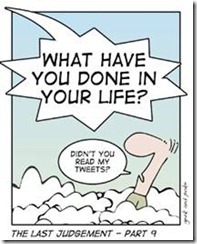It is obvious that the current digital world has changed the entire dynamics of communication across all age levels; the way we work , the way we live and the way we make and maintain friendships have so far taken a different twist.
Everyone remembers that the advent of email literally destroyed letter writing , and even the art of writing altogether. Fare-thee-well to writing letters! Email, SMS and social media communications tools have made irreversible impact on the way we write and communicate.
Today , many of us tend to be much more revealing in business and personal communications than ever before. Social media quickly breaks down personal barriers. Telling the world personal things , and then exploring them onto blogs , Facebook , Twitter , Instagram , you name it , has become socially acceptable in many circles.
A person will post details that they probably never would have called dozens of people over the phone or to their home to share. These little tidbits have opened up a whole new world of conversational opportunities when we see our friends in person. Before the advent of social media , jumping into a conversation about personal issues with a coworker may have felt awkward. Today , after seeing their pictures and posts online , however , it becomes much easier to broach the subject.
When we first heard of Twitter and its 140 character limit , most of us wondered how in the world we could convey something meaningful in 25-30 words. Now we have realised that Twitter pushes us to get to the essence of what we are trying to say. Who says you must have full sentences or paragraphs of text to make an impact or to drive people to action.
The need for fewer sentences has pushed for many short forms that we find ourselves using in our daily communication : BTW -By the way , IDK - I don't know , LMK - Let me know , LOL - Laughing out loud , OMG - Oh my God are just but a few acronyms we have found ourselves typing from our varied gadgets. These demonstrate how social media speeds things up by lessening the need to write longer phrases and reduce space. People who use these via SMS or social networks are not necessarily spelling things incorrectly . They are effectively speaking a new language entirely.
Emoticons , representing of a facial expression such as smile of frown (😅😍😎😈😙) , formed by various combinations of keyboard characters and used to convey what the user is feeling or to express the intended tone without actually having to write it has become acceptable. You could argue that this is a lazy form of writing , but social media isn't a process of creative writing , at least not in the traditional sense , it is a fast and convenient way of interacting with an audience. A whole host of words originating from social media and the wider Internet have become so commonplace that they have now slipped into popular usage , and we do not even realise it.
Their is also a big impact of social communications in the realm of public speaking. As an attendee at conferences I love tweeting quotes I hear from speakers , to share their wisdoms with my followers. But as a speaker myself , I am overwhelmed by being sent into tailspins trying to adjust to speaking to an audience whose faces are obstructed by their laptops or who are so busy on their phones that the speaker can only see the tops of their heads , instead of their eyes and face.
There is no single right or wrong way to assimilate all these into our daily lives and work - it all depends upon our own time , setting , colleagues, and even the image you want to project. For better or for worse , we are all in a new world of communications and most of us will have to learn that new language whether we want it or not!
ANISHA KHURANA






